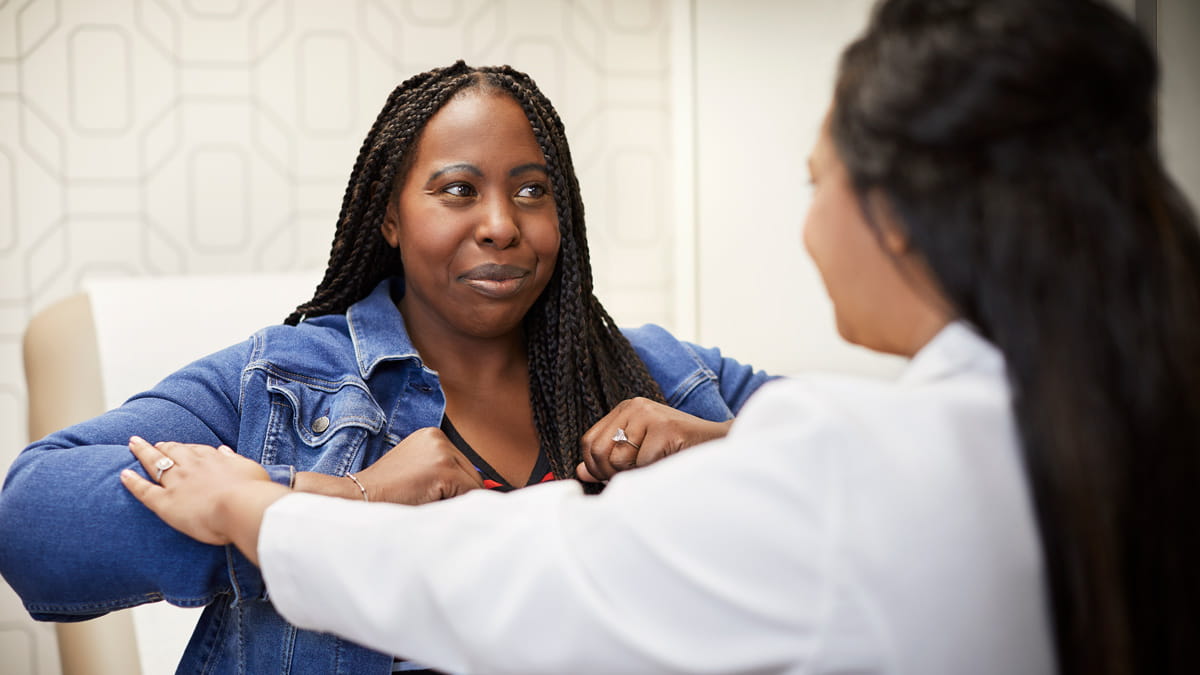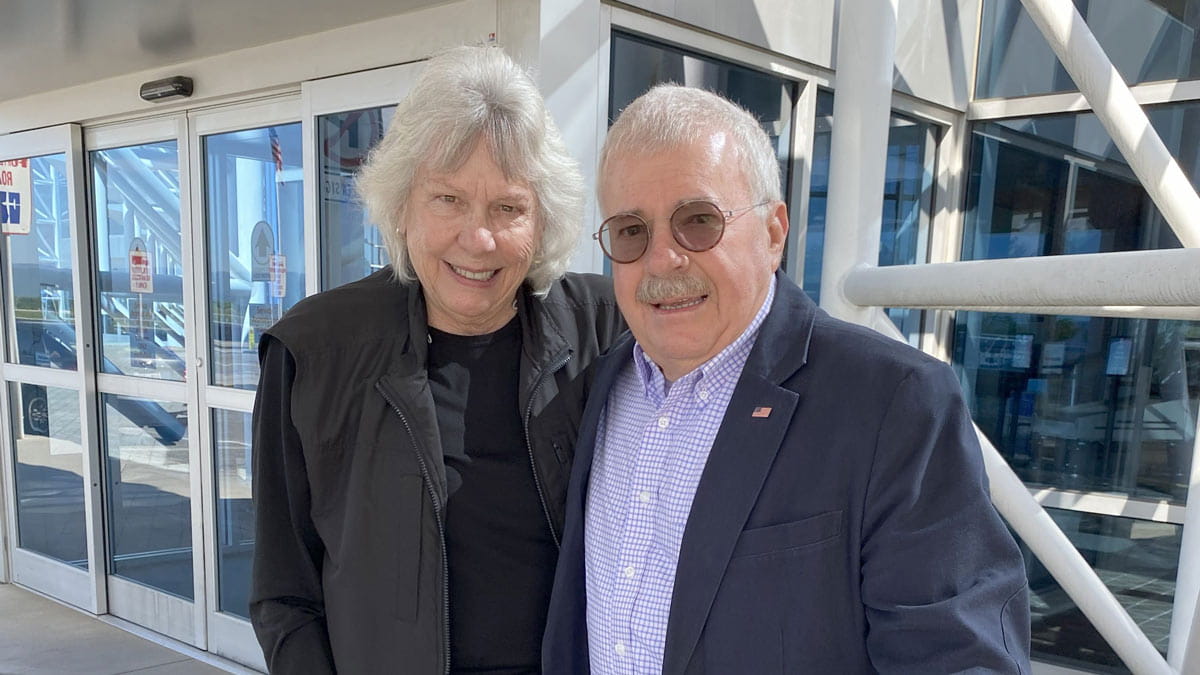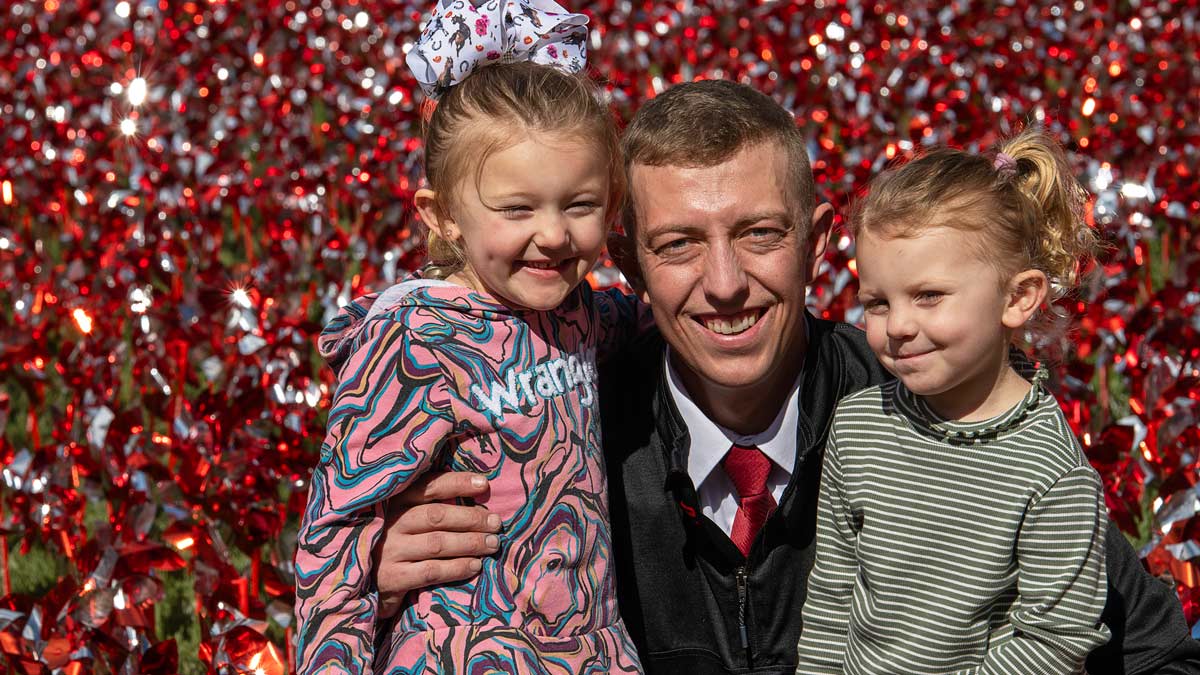I feel like I’ve gotten my life back
Sheanneen Shelby, living with epilepsy

It’s been three years since Sheanneen Shelby’s last seizure. Three years since she’d frequently wake up on a bus, at the bottom of stairs, on her kitchen floor, sometimes bruised and often unaware of how she got there.
She’s had too many seizures to count, her first while driving to work with a friend one morning in May 2014. Waking up in an ambulance, Sheanneen had no idea she’d hit two cars and a brick wall and fortunately injured no one. After tests that day, she was diagnosed with epilepsy at age 29 — and began a decade of experiencing so many seizures she became terrified to leave her home.
The seizures gradually became less frequent before they went away entirely as she adjusted to the right combination and dose of medications, and changed how she ate, how frequently she exercised and how much sleep she got.
Now at 41, she recently started a dream job as a fashion stylist and she’s about to get married.
“I feel like I’ve gotten my life back,” she says. “I thought I’d always be in a dark abyss, that my brain would eventually shut off.”

What caused you to stop having epileptic seizures?
In 2018, I came to Ohio State, where doctors actively listened to me. They gave me space to steer the ship of my own wellness. They asked me open-ended questions about how I felt. I worked with a nutritionist to revamp my diet, eliminate sugar and caffeine, and eat more fruits and vegetables and less meat. I make sure I get enough sleep every night, eat three meals a day and exercise.
Those changes as well as the two medications I’m on at low doses have kept me from having seizures.
What are triggers to a seizure?
For me, not getting enough sleep is one of them. Low blood sugar is another. Besides eliminating sugar and caffeine, I make sure to eat three meals a day even if I’m not hungry. Stress and not exercising regularly can also bring on a seizure as well.
What advice do you have for someone just diagnosed with epilepsy?
You’re not alone. And yet, a lot of people may not understand the disorder. When I say I have epilepsy, some people confuse it with narcolepsy, the sleep disorder that can cause someone to fall asleep suddenly.
Also, find something that you love to do to take your mind off of your epilepsy. The Ohio State Neurology team were so supportive during my journey. I was shut in at home with all this experience in fashion, so I started a business fashion styling and visual merchandising at one of my lowest points to generate motivation and hope for myself.
I'm glad I did this because epilepsy felt so crippling that for about a year and a half, I became agoraphobic. I would not leave my house because I feared leaving equaled having a seizure somewhere. There’s no worse feeling than waking up and not knowing what happened; waking up and having me lapsed and having people around you panicking and knowing you caused that panic, especially when it’s people who are close to you.
I would only leave the house for the occasional appointment and groceries, and even then sometimes I would wake up on the bus after a subtle seizer and have no idea where I was.
When you have a condition that makes you feel different, it’s important to reach out to people similar to you. Loneliness can become a hole. Unfortunately, that hole can become so vast that it swallows you. At one point, I thought: My sister will be OK without me.
What have you gained from having epilepsy?
The experience amplified my empathy and my gratitude and opened me up — made me willing to love and be loved in a relationship.
I've gained a sense of fearlessness that was not there was not there before. People have to point it out to me. They will be like, "You do realize that you took a job as a visual merchandiser in Southern Florida during Covid-19 when people weren't wearing masks to try and save your business, don't you?" I know that I was/am more susceptible but I worked with small businesses and individuals and I just wanted to continue doing what I love to do.
Feeling safe and supported by the Ohio State Neurology team helped me start something in the fashion realm. My first fashion show was in high school and it took the scariest moment in my life to move forward with my ultimate dream of owning a business. I was an epileptic fashion stylist!
The pandemic ate that business, but it's okay. The experience, as a whole, amplified my empathy and my gratitude and opened me up — made me willing to love and be loved in a relationship. I told myself, "I can spend that me by myself too, or I can take a risk and share my life with someone else." On Dec 22, 2019, I met my, now, husband.
Having epilepsy also made me realize I’m not going to live forever. Now that I'm seizure-free, do I have my no business venture yet? No. But, I would like to work with women in the area of fashion in turning those less-motivated thoughts that most of us have about our journeys with our bodies and help my clients turn them into lemonade!




